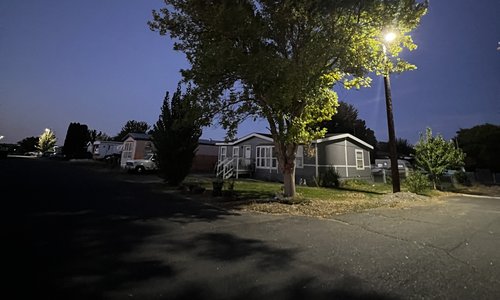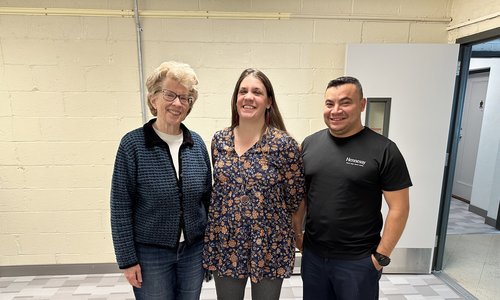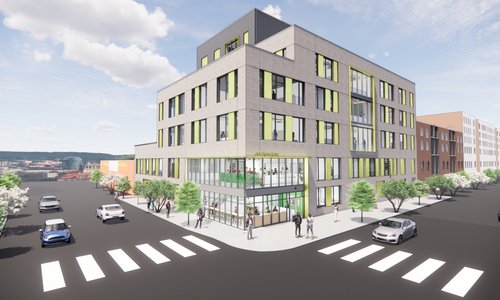Lending profiles

2024 LISC Small Business Holiday Gift Guide
This holiday season, support LISC small business borrowers and find the perfect gift for everyone on your list! All of the businesses featured here have received LISC capital to acquire their location, hire new staff, or increase inventory to help their business grow.

Black-owned Embroidery Business Sews a Missing Thread in Alabama
Alabama-based Epiphanys recently received a $350,000 acquisition loan from LISC to expand its capacity to serve federal agencies and fuel growth through new contracts. The loan was supported by Truist, Mackenzie Scott, and the Wells Fargo Open for Business Fund.

Emergency Management Consulting Firm is Charting New Territory, with Help From LISC
Houston-based Laveer Logix recently received a $260,000 working capital loan from LISC to expand its capacity to serve federal agencies and fuel growth through new contracts. The loan was supported by the Abbott-LISC Initiative to Support Diverse Businesses in Health and the LISC Entrepreneurs of Color Fund supported by JPMorganChase.

Mobile Home Residents in Washington State Are Calling the Shots After Buying Their Park
Manufactured housing, which 20 million Americans call home, is one of the few affordable housing options in the United States. The residents of two Washington State mobile home communities recently succeeded in purchasing their parks with help from ROC USA and over $2 million in financing from Rural LISC. As a result, they have been able to stabilize their housing costs, upgrade their communities and remain in the places they love.

DC Co-Op Residents Are Reaping the Benefits of Ownership Amid Neighborhood Development
DC’s Tenant Opportunity to Purchase Act granted the 1400 Aspen Street Tenants Association the right to seize their building after a decade long fight. LISC, supplemented by the Department of Housing and Community Development’s Preservation Loan Fund, provided $3.9 million in acquisition financing to the association. Since rising above the COVID-19 pandemic and buyout offers, residents in the building are now settling into their upgraded permanent homes.

Rudy Espinoza, President & CEO of Inclusive Action for the City, on LA’s Street Vendors, Micro-Loans, and More
The Entrepreneurs of Color Fund (EOCF) is designed to get much-needed capital directly into the hands of small business owners serving communities of color, and has over twenty CDFI partners in local markets across the country, with LISC as national manager. Inclusive Action for the City (IAC) is a community development financial institution and an EOCF partner in Los Angeles providing micro-loans to businesses, with a focus on food vendors. IAC’s Rudy Espinoza explains why protecting street vendors must not be a passing trend but a sustained cultural shift that creates a more inclusive economy.

First-of-Its-Kind Affordable Maryland Housing Community Will Promote Efficient Energy and Uplift Local History
Fairmount Heights Zero Energy homes in Prince George’s County, MD, with help from a $1.8 million LISC construction loan, will develop six net-zero homes to be sold to low-income residents in addition to a community-serving pocket park, serving as a model for other energy efficient communities across the country.
Gosnold Apartments II
LISC provided $500,000 of predevelopment financing to support the renovation and expansion of Gosnold Apartments, originally opened in 2006.

LISC Lending’s 2023 Late Summer Reading Roundup
Ever wonder where the concept of summer reading comes from? The New York Times Book Review published its first special issue of “books suitable for summer reading” in 1897. Summer was once a slow season for book sales, but that all changed when innovations in book production, which made books cheaper, collided with a growing middle class taking summer vacations.

With Help from LISC, a Tech-focused Charter School in the Bronx Is Getting a New Home
Comp Sci High, a charter school in the Bronx that prepares students to access jobs in the region’s tech industry, will get a new facility to accommodate its growing enrollment thanks to a new loan from LISC.